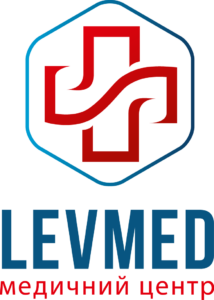????
Your IP : 18.191.202.177 <?php
/**
* IRI parser/serialiser/normaliser
*
* @package Requests
* @subpackage Utilities
*/
/**
* IRI parser/serialiser/normaliser
*
* Copyright (c) 2007-2010, Geoffrey Sneddon and Steve Minutillo.
* All rights reserved.
*
* Redistribution and use in source and binary forms, with or without
* modification, are permitted provided that the following conditions are met:
*
* * Redistributions of source code must retain the above copyright notice,
* this list of conditions and the following disclaimer.
*
* * Redistributions in binary form must reproduce the above copyright notice,
* this list of conditions and the following disclaimer in the documentation
* and/or other materials provided with the distribution.
*
* * Neither the name of the SimplePie Team nor the names of its contributors
* may be used to endorse or promote products derived from this software
* without specific prior written permission.
*
* THIS SOFTWARE IS PROVIDED BY THE COPYRIGHT HOLDERS AND CONTRIBUTORS "AS IS"
* AND ANY EXPRESS OR IMPLIED WARRANTIES, INCLUDING, BUT NOT LIMITED TO, THE
* IMPLIED WARRANTIES OF MERCHANTABILITY AND FITNESS FOR A PARTICULAR PURPOSE
* ARE DISCLAIMED. IN NO EVENT SHALL THE COPYRIGHT HOLDERS AND CONTRIBUTORS BE
* LIABLE FOR ANY DIRECT, INDIRECT, INCIDENTAL, SPECIAL, EXEMPLARY, OR
* CONSEQUENTIAL DAMAGES (INCLUDING, BUT NOT LIMITED TO, PROCUREMENT OF
* SUBSTITUTE GOODS OR SERVICES; LOSS OF USE, DATA, OR PROFITS; OR BUSINESS
* INTERRUPTION) HOWEVER CAUSED AND ON ANY THEORY OF LIABILITY, WHETHER IN
* CONTRACT, STRICT LIABILITY, OR TORT (INCLUDING NEGLIGENCE OR OTHERWISE)
* ARISING IN ANY WAY OUT OF THE USE OF THIS SOFTWARE, EVEN IF ADVISED OF THE
* POSSIBILITY OF SUCH DAMAGE.
*
* @package Requests
* @subpackage Utilities
* @author Geoffrey Sneddon
* @author Steve Minutillo
* @copyright 2007-2009 Geoffrey Sneddon and Steve Minutillo
* @license http://www.opensource.org/licenses/bsd-license.php
* @link http://hg.gsnedders.com/iri/
*
* @property string $iri IRI we're working with
* @property-read string $uri IRI in URI form, {@see to_uri}
* @property string $scheme Scheme part of the IRI
* @property string $authority Authority part, formatted for a URI (userinfo + host + port)
* @property string $iauthority Authority part of the IRI (userinfo + host + port)
* @property string $userinfo Userinfo part, formatted for a URI (after '://' and before '@')
* @property string $iuserinfo Userinfo part of the IRI (after '://' and before '@')
* @property string $host Host part, formatted for a URI
* @property string $ihost Host part of the IRI
* @property string $port Port part of the IRI (after ':')
* @property string $path Path part, formatted for a URI (after first '/')
* @property string $ipath Path part of the IRI (after first '/')
* @property string $query Query part, formatted for a URI (after '?')
* @property string $iquery Query part of the IRI (after '?')
* @property string $fragment Fragment, formatted for a URI (after '#')
* @property string $ifragment Fragment part of the IRI (after '#')
*/
class Requests_IRI {
/**
* Scheme
*
* @var string|null
*/
protected $scheme = null;
/**
* User Information
*
* @var string|null
*/
protected $iuserinfo = null;
/**
* ihost
*
* @var string|null
*/
protected $ihost = null;
/**
* Port
*
* @var string|null
*/
protected $port = null;
/**
* ipath
*
* @var string
*/
protected $ipath = '';
/**
* iquery
*
* @var string|null
*/
protected $iquery = null;
/**
* ifragment|null
*
* @var string
*/
protected $ifragment = null;
/**
* Normalization database
*
* Each key is the scheme, each value is an array with each key as the IRI
* part and value as the default value for that part.
*
* @var array
*/
protected $normalization = array(
'acap' => array(
'port' => 674
),
'dict' => array(
'port' => 2628
),
'file' => array(
'ihost' => 'localhost'
),
'http' => array(
'port' => 80,
),
'https' => array(
'port' => 443,
),
);
/**
* Return the entire IRI when you try and read the object as a string
*
* @return string
*/
public function __toString() {
return $this->get_iri();
}
/**
* Overload __set() to provide access via properties
*
* @param string $name Property name
* @param mixed $value Property value
*/
public function __set($name, $value) {
if (method_exists($this, 'set_' . $name)) {
call_user_func(array($this, 'set_' . $name), $value);
}
elseif (
$name === 'iauthority'
|| $name === 'iuserinfo'
|| $name === 'ihost'
|| $name === 'ipath'
|| $name === 'iquery'
|| $name === 'ifragment'
) {
call_user_func(array($this, 'set_' . substr($name, 1)), $value);
}
}
/**
* Overload __get() to provide access via properties
*
* @param string $name Property name
* @return mixed
*/
public function __get($name) {
// isset() returns false for null, we don't want to do that
// Also why we use array_key_exists below instead of isset()
$props = get_object_vars($this);
if (
$name === 'iri' ||
$name === 'uri' ||
$name === 'iauthority' ||
$name === 'authority'
) {
$method = 'get_' . $name;
$return = $this->$method();
}
elseif (array_key_exists($name, $props)) {
$return = $this->$name;
}
// host -> ihost
elseif (($prop = 'i' . $name) && array_key_exists($prop, $props)) {
$name = $prop;
$return = $this->$prop;
}
// ischeme -> scheme
elseif (($prop = substr($name, 1)) && array_key_exists($prop, $props)) {
$name = $prop;
$return = $this->$prop;
}
else {
trigger_error('Undefined property: ' . get_class($this) . '::' . $name, E_USER_NOTICE);
$return = null;
}
if ($return === null && isset($this->normalization[$this->scheme][$name])) {
return $this->normalization[$this->scheme][$name];
}
else {
return $return;
}
}
/**
* Overload __isset() to provide access via properties
*
* @param string $name Property name
* @return bool
*/
public function __isset($name) {
return (method_exists($this, 'get_' . $name) || isset($this->$name));
}
/**
* Overload __unset() to provide access via properties
*
* @param string $name Property name
*/
public function __unset($name) {
if (method_exists($this, 'set_' . $name)) {
call_user_func(array($this, 'set_' . $name), '');
}
}
/**
* Create a new IRI object, from a specified string
*
* @param string|null $iri
*/
public function __construct($iri = null) {
$this->set_iri($iri);
}
/**
* Create a new IRI object by resolving a relative IRI
*
* Returns false if $base is not absolute, otherwise an IRI.
*
* @param Requests_IRI|string $base (Absolute) Base IRI
* @param Requests_IRI|string $relative Relative IRI
* @return Requests_IRI|false
*/
public static function absolutize($base, $relative) {
if (!($relative instanceof Requests_IRI)) {
$relative = new Requests_IRI($relative);
}
if (!$relative->is_valid()) {
return false;
}
elseif ($relative->scheme !== null) {
return clone $relative;
}
if (!($base instanceof Requests_IRI)) {
$base = new Requests_IRI($base);
}
if ($base->scheme === null || !$base->is_valid()) {
return false;
}
if ($relative->get_iri() !== '') {
if ($relative->iuserinfo !== null || $relative->ihost !== null || $relative->port !== null) {
$target = clone $relative;
$target->scheme = $base->scheme;
}
else {
$target = new Requests_IRI;
$target->scheme = $base->scheme;
$target->iuserinfo = $base->iuserinfo;
$target->ihost = $base->ihost;
$target->port = $base->port;
if ($relative->ipath !== '') {
if ($relative->ipath[0] === '/') {
$target->ipath = $relative->ipath;
}
elseif (($base->iuserinfo !== null || $base->ihost !== null || $base->port !== null) && $base->ipath === '') {
$target->ipath = '/' . $relative->ipath;
}
elseif (($last_segment = strrpos($base->ipath, '/')) !== false) {
$target->ipath = substr($base->ipath, 0, $last_segment + 1) . $relative->ipath;
}
else {
$target->ipath = $relative->ipath;
}
$target->ipath = $target->remove_dot_segments($target->ipath);
$target->iquery = $relative->iquery;
}
else {
$target->ipath = $base->ipath;
if ($relative->iquery !== null) {
$target->iquery = $relative->iquery;
}
elseif ($base->iquery !== null) {
$target->iquery = $base->iquery;
}
}
$target->ifragment = $relative->ifragment;
}
}
else {
$target = clone $base;
$target->ifragment = null;
}
$target->scheme_normalization();
return $target;
}
/**
* Parse an IRI into scheme/authority/path/query/fragment segments
*
* @param string $iri
* @return array
*/
protected function parse_iri($iri) {
$iri = trim($iri, "\x20\x09\x0A\x0C\x0D");
$has_match = preg_match('/^((?P<scheme>[^:\/?#]+):)?(\/\/(?P<authority>[^\/?#]*))?(?P<path>[^?#]*)(\?(?P<query>[^#]*))?(#(?P<fragment>.*))?$/', $iri, $match);
if (!$has_match) {
throw new Requests_Exception('Cannot parse supplied IRI', 'iri.cannot_parse', $iri);
}
if ($match[1] === '') {
$match['scheme'] = null;
}
if (!isset($match[3]) || $match[3] === '') {
$match['authority'] = null;
}
if (!isset($match[5])) {
$match['path'] = '';
}
if (!isset($match[6]) || $match[6] === '') {
$match['query'] = null;
}
if (!isset($match[8]) || $match[8] === '') {
$match['fragment'] = null;
}
return $match;
}
/**
* Remove dot segments from a path
*
* @param string $input
* @return string
*/
protected function remove_dot_segments($input) {
$output = '';
while (strpos($input, './') !== false || strpos($input, '/.') !== false || $input === '.' || $input === '..') {
// A: If the input buffer begins with a prefix of "../" or "./",
// then remove that prefix from the input buffer; otherwise,
if (strpos($input, '../') === 0) {
$input = substr($input, 3);
}
elseif (strpos($input, './') === 0) {
$input = substr($input, 2);
}
// B: if the input buffer begins with a prefix of "/./" or "/.",
// where "." is a complete path segment, then replace that prefix
// with "/" in the input buffer; otherwise,
elseif (strpos($input, '/./') === 0) {
$input = substr($input, 2);
}
elseif ($input === '/.') {
$input = '/';
}
// C: if the input buffer begins with a prefix of "/../" or "/..",
// where ".." is a complete path segment, then replace that prefix
// with "/" in the input buffer and remove the last segment and its
// preceding "/" (if any) from the output buffer; otherwise,
elseif (strpos($input, '/../') === 0) {
$input = substr($input, 3);
$output = substr_replace($output, '', strrpos($output, '/'));
}
elseif ($input === '/..') {
$input = '/';
$output = substr_replace($output, '', strrpos($output, '/'));
}
// D: if the input buffer consists only of "." or "..", then remove
// that from the input buffer; otherwise,
elseif ($input === '.' || $input === '..') {
$input = '';
}
// E: move the first path segment in the input buffer to the end of
// the output buffer, including the initial "/" character (if any)
// and any subsequent characters up to, but not including, the next
// "/" character or the end of the input buffer
elseif (($pos = strpos($input, '/', 1)) !== false) {
$output .= substr($input, 0, $pos);
$input = substr_replace($input, '', 0, $pos);
}
else {
$output .= $input;
$input = '';
}
}
return $output . $input;
}
/**
* Replace invalid character with percent encoding
*
* @param string $string Input string
* @param string $extra_chars Valid characters not in iunreserved or
* iprivate (this is ASCII-only)
* @param bool $iprivate Allow iprivate
* @return string
*/
protected function replace_invalid_with_pct_encoding($string, $extra_chars, $iprivate = false) {
// Normalize as many pct-encoded sections as possible
$string = preg_replace_callback('/(?:%[A-Fa-f0-9]{2})+/', array($this, 'remove_iunreserved_percent_encoded'), $string);
// Replace invalid percent characters
$string = preg_replace('/%(?![A-Fa-f0-9]{2})/', '%25', $string);
// Add unreserved and % to $extra_chars (the latter is safe because all
// pct-encoded sections are now valid).
$extra_chars .= 'ABCDEFGHIJKLMNOPQRSTUVWXYZabcdefghijklmnopqrstuvwxyz0123456789-._~%';
// Now replace any bytes that aren't allowed with their pct-encoded versions
$position = 0;
$strlen = strlen($string);
while (($position += strspn($string, $extra_chars, $position)) < $strlen) {
$value = ord($string[$position]);
// Start position
$start = $position;
// By default we are valid
$valid = true;
// No one byte sequences are valid due to the while.
// Two byte sequence:
if (($value & 0xE0) === 0xC0) {
$character = ($value & 0x1F) << 6;
$length = 2;
$remaining = 1;
}
// Three byte sequence:
elseif (($value & 0xF0) === 0xE0) {
$character = ($value & 0x0F) << 12;
$length = 3;
$remaining = 2;
}
// Four byte sequence:
elseif (($value & 0xF8) === 0xF0) {
$character = ($value & 0x07) << 18;
$length = 4;
$remaining = 3;
}
// Invalid byte:
else {
$valid = false;
$length = 1;
$remaining = 0;
}
if ($remaining) {
if ($position + $length <= $strlen) {
for ($position++; $remaining; $position++) {
$value = ord($string[$position]);
// Check that the byte is valid, then add it to the character:
if (($value & 0xC0) === 0x80) {
$character |= ($value & 0x3F) << (--$remaining * 6);
}
// If it is invalid, count the sequence as invalid and reprocess the current byte:
else {
$valid = false;
$position--;
break;
}
}
}
else {
$position = $strlen - 1;
$valid = false;
}
}
// Percent encode anything invalid or not in ucschar
if (
// Invalid sequences
!$valid
// Non-shortest form sequences are invalid
|| $length > 1 && $character <= 0x7F
|| $length > 2 && $character <= 0x7FF
|| $length > 3 && $character <= 0xFFFF
// Outside of range of ucschar codepoints
// Noncharacters
|| ($character & 0xFFFE) === 0xFFFE
|| $character >= 0xFDD0 && $character <= 0xFDEF
|| (
// Everything else not in ucschar
$character > 0xD7FF && $character < 0xF900
|| $character < 0xA0
|| $character > 0xEFFFD
)
&& (
// Everything not in iprivate, if it applies
!$iprivate
|| $character < 0xE000
|| $character > 0x10FFFD
)
) {
// If we were a character, pretend we weren't, but rather an error.
if ($valid) {
$position--;
}
for ($j = $start; $j <= $position; $j++) {
$string = substr_replace($string, sprintf('%%%02X', ord($string[$j])), $j, 1);
$j += 2;
$position += 2;
$strlen += 2;
}
}
}
return $string;
}
/**
* Callback function for preg_replace_callback.
*
* Removes sequences of percent encoded bytes that represent UTF-8
* encoded characters in iunreserved
*
* @param array $match PCRE match
* @return string Replacement
*/
protected function remove_iunreserved_percent_encoded($match) {
// As we just have valid percent encoded sequences we can just explode
// and ignore the first member of the returned array (an empty string).
$bytes = explode('%', $match[0]);
// Initialize the new string (this is what will be returned) and that
// there are no bytes remaining in the current sequence (unsurprising
// at the first byte!).
$string = '';
$remaining = 0;
// Loop over each and every byte, and set $value to its value
for ($i = 1, $len = count($bytes); $i < $len; $i++) {
$value = hexdec($bytes[$i]);
// If we're the first byte of sequence:
if (!$remaining) {
// Start position
$start = $i;
// By default we are valid
$valid = true;
// One byte sequence:
if ($value <= 0x7F) {
$character = $value;
$length = 1;
}
// Two byte sequence:
elseif (($value & 0xE0) === 0xC0) {
$character = ($value & 0x1F) << 6;
$length = 2;
$remaining = 1;
}
// Three byte sequence:
elseif (($value & 0xF0) === 0xE0) {
$character = ($value & 0x0F) << 12;
$length = 3;
$remaining = 2;
}
// Four byte sequence:
elseif (($value & 0xF8) === 0xF0) {
$character = ($value & 0x07) << 18;
$length = 4;
$remaining = 3;
}
// Invalid byte:
else {
$valid = false;
$remaining = 0;
}
}
// Continuation byte:
else {
// Check that the byte is valid, then add it to the character:
if (($value & 0xC0) === 0x80) {
$remaining--;
$character |= ($value & 0x3F) << ($remaining * 6);
}
// If it is invalid, count the sequence as invalid and reprocess the current byte as the start of a sequence:
else {
$valid = false;
$remaining = 0;
$i--;
}
}
// If we've reached the end of the current byte sequence, append it to Unicode::$data
if (!$remaining) {
// Percent encode anything invalid or not in iunreserved
if (
// Invalid sequences
!$valid
// Non-shortest form sequences are invalid
|| $length > 1 && $character <= 0x7F
|| $length > 2 && $character <= 0x7FF
|| $length > 3 && $character <= 0xFFFF
// Outside of range of iunreserved codepoints
|| $character < 0x2D
|| $character > 0xEFFFD
// Noncharacters
|| ($character & 0xFFFE) === 0xFFFE
|| $character >= 0xFDD0 && $character <= 0xFDEF
// Everything else not in iunreserved (this is all BMP)
|| $character === 0x2F
|| $character > 0x39 && $character < 0x41
|| $character > 0x5A && $character < 0x61
|| $character > 0x7A && $character < 0x7E
|| $character > 0x7E && $character < 0xA0
|| $character > 0xD7FF && $character < 0xF900
) {
for ($j = $start; $j <= $i; $j++) {
$string .= '%' . strtoupper($bytes[$j]);
}
}
else {
for ($j = $start; $j <= $i; $j++) {
$string .= chr(hexdec($bytes[$j]));
}
}
}
}
// If we have any bytes left over they are invalid (i.e., we are
// mid-way through a multi-byte sequence)
if ($remaining) {
for ($j = $start; $j < $len; $j++) {
$string .= '%' . strtoupper($bytes[$j]);
}
}
return $string;
}
protected function scheme_normalization() {
if (isset($this->normalization[$this->scheme]['iuserinfo']) && $this->iuserinfo === $this->normalization[$this->scheme]['iuserinfo']) {
$this->iuserinfo = null;
}
if (isset($this->normalization[$this->scheme]['ihost']) && $this->ihost === $this->normalization[$this->scheme]['ihost']) {
$this->ihost = null;
}
if (isset($this->normalization[$this->scheme]['port']) && $this->port === $this->normalization[$this->scheme]['port']) {
$this->port = null;
}
if (isset($this->normalization[$this->scheme]['ipath']) && $this->ipath === $this->normalization[$this->scheme]['ipath']) {
$this->ipath = '';
}
if (isset($this->ihost) && empty($this->ipath)) {
$this->ipath = '/';
}
if (isset($this->normalization[$this->scheme]['iquery']) && $this->iquery === $this->normalization[$this->scheme]['iquery']) {
$this->iquery = null;
}
if (isset($this->normalization[$this->scheme]['ifragment']) && $this->ifragment === $this->normalization[$this->scheme]['ifragment']) {
$this->ifragment = null;
}
}
/**
* Check if the object represents a valid IRI. This needs to be done on each
* call as some things change depending on another part of the IRI.
*
* @return bool
*/
public function is_valid() {
$isauthority = $this->iuserinfo !== null || $this->ihost !== null || $this->port !== null;
if ($this->ipath !== '' &&
(
$isauthority && $this->ipath[0] !== '/' ||
(
$this->scheme === null &&
!$isauthority &&
strpos($this->ipath, ':') !== false &&
(strpos($this->ipath, '/') === false ? true : strpos($this->ipath, ':') < strpos($this->ipath, '/'))
)
)
) {
return false;
}
return true;
}
/**
* Set the entire IRI. Returns true on success, false on failure (if there
* are any invalid characters).
*
* @param string $iri
* @return bool
*/
protected function set_iri($iri) {
static $cache;
if (!$cache) {
$cache = array();
}
if ($iri === null) {
return true;
}
if (isset($cache[$iri])) {
list($this->scheme,
$this->iuserinfo,
$this->ihost,
$this->port,
$this->ipath,
$this->iquery,
$this->ifragment,
$return) = $cache[$iri];
return $return;
}
$parsed = $this->parse_iri((string) $iri);
$return = $this->set_scheme($parsed['scheme'])
&& $this->set_authority($parsed['authority'])
&& $this->set_path($parsed['path'])
&& $this->set_query($parsed['query'])
&& $this->set_fragment($parsed['fragment']);
$cache[$iri] = array($this->scheme,
$this->iuserinfo,
$this->ihost,
$this->port,
$this->ipath,
$this->iquery,
$this->ifragment,
$return);
return $return;
}
/**
* Set the scheme. Returns true on success, false on failure (if there are
* any invalid characters).
*
* @param string $scheme
* @return bool
*/
protected function set_scheme($scheme) {
if ($scheme === null) {
$this->scheme = null;
}
elseif (!preg_match('/^[A-Za-z][0-9A-Za-z+\-.]*$/', $scheme)) {
$this->scheme = null;
return false;
}
else {
$this->scheme = strtolower($scheme);
}
return true;
}
/**
* Set the authority. Returns true on success, false on failure (if there are
* any invalid characters).
*
* @param string $authority
* @return bool
*/
protected function set_authority($authority) {
static $cache;
if (!$cache) {
$cache = array();
}
if ($authority === null) {
$this->iuserinfo = null;
$this->ihost = null;
$this->port = null;
return true;
}
if (isset($cache[$authority])) {
list($this->iuserinfo,
$this->ihost,
$this->port,
$return) = $cache[$authority];
return $return;
}
$remaining = $authority;
if (($iuserinfo_end = strrpos($remaining, '@')) !== false) {
$iuserinfo = substr($remaining, 0, $iuserinfo_end);
$remaining = substr($remaining, $iuserinfo_end + 1);
}
else {
$iuserinfo = null;
}
if (($port_start = strpos($remaining, ':', strpos($remaining, ']'))) !== false) {
$port = substr($remaining, $port_start + 1);
if ($port === false || $port === '') {
$port = null;
}
$remaining = substr($remaining, 0, $port_start);
}
else {
$port = null;
}
$return = $this->set_userinfo($iuserinfo) &&
$this->set_host($remaining) &&
$this->set_port($port);
$cache[$authority] = array($this->iuserinfo,
$this->ihost,
$this->port,
$return);
return $return;
}
/**
* Set the iuserinfo.
*
* @param string $iuserinfo
* @return bool
*/
protected function set_userinfo($iuserinfo) {
if ($iuserinfo === null) {
$this->iuserinfo = null;
}
else {
$this->iuserinfo = $this->replace_invalid_with_pct_encoding($iuserinfo, '!$&\'()*+,;=:');
$this->scheme_normalization();
}
return true;
}
/**
* Set the ihost. Returns true on success, false on failure (if there are
* any invalid characters).
*
* @param string $ihost
* @return bool
*/
protected function set_host($ihost) {
if ($ihost === null) {
$this->ihost = null;
return true;
}
if (substr($ihost, 0, 1) === '[' && substr($ihost, -1) === ']') {
if (Requests_IPv6::check_ipv6(substr($ihost, 1, -1))) {
$this->ihost = '[' . Requests_IPv6::compress(substr($ihost, 1, -1)) . ']';
}
else {
$this->ihost = null;
return false;
}
}
else {
$ihost = $this->replace_invalid_with_pct_encoding($ihost, '!$&\'()*+,;=');
// Lowercase, but ignore pct-encoded sections (as they should
// remain uppercase). This must be done after the previous step
// as that can add unescaped characters.
$position = 0;
$strlen = strlen($ihost);
while (($position += strcspn($ihost, 'ABCDEFGHIJKLMNOPQRSTUVWXYZ%', $position)) < $strlen) {
if ($ihost[$position] === '%') {
$position += 3;
}
else {
$ihost[$position] = strtolower($ihost[$position]);
$position++;
}
}
$this->ihost = $ihost;
}
$this->scheme_normalization();
return true;
}
/**
* Set the port. Returns true on success, false on failure (if there are
* any invalid characters).
*
* @param string $port
* @return bool
*/
protected function set_port($port) {
if ($port === null) {
$this->port = null;
return true;
}
if (strspn($port, '0123456789') === strlen($port)) {
$this->port = (int) $port;
$this->scheme_normalization();
return true;
}
$this->port = null;
return false;
}
/**
* Set the ipath.
*
* @param string $ipath
* @return bool
*/
protected function set_path($ipath) {
static $cache;
if (!$cache) {
$cache = array();
}
$ipath = (string) $ipath;
if (isset($cache[$ipath])) {
$this->ipath = $cache[$ipath][(int) ($this->scheme !== null)];
}
else {
$valid = $this->replace_invalid_with_pct_encoding($ipath, '!$&\'()*+,;=@:/');
$removed = $this->remove_dot_segments($valid);
$cache[$ipath] = array($valid, $removed);
$this->ipath = ($this->scheme !== null) ? $removed : $valid;
}
$this->scheme_normalization();
return true;
}
/**
* Set the iquery.
*
* @param string $iquery
* @return bool
*/
protected function set_query($iquery) {
if ($iquery === null) {
$this->iquery = null;
}
else {
$this->iquery = $this->replace_invalid_with_pct_encoding($iquery, '!$&\'()*+,;=:@/?', true);
$this->scheme_normalization();
}
return true;
}
/**
* Set the ifragment.
*
* @param string $ifragment
* @return bool
*/
protected function set_fragment($ifragment) {
if ($ifragment === null) {
$this->ifragment = null;
}
else {
$this->ifragment = $this->replace_invalid_with_pct_encoding($ifragment, '!$&\'()*+,;=:@/?');
$this->scheme_normalization();
}
return true;
}
/**
* Convert an IRI to a URI (or parts thereof)
*
* @param string|bool IRI to convert (or false from {@see get_iri})
* @return string|false URI if IRI is valid, false otherwise.
*/
protected function to_uri($string) {
if (!is_string($string)) {
return false;
}
static $non_ascii;
if (!$non_ascii) {
$non_ascii = implode('', range("\x80", "\xFF"));
}
$position = 0;
$strlen = strlen($string);
while (($position += strcspn($string, $non_ascii, $position)) < $strlen) {
$string = substr_replace($string, sprintf('%%%02X', ord($string[$position])), $position, 1);
$position += 3;
$strlen += 2;
}
return $string;
}
/**
* Get the complete IRI
*
* @return string|false
*/
protected function get_iri() {
if (!$this->is_valid()) {
return false;
}
$iri = '';
if ($this->scheme !== null) {
$iri .= $this->scheme . ':';
}
if (($iauthority = $this->get_iauthority()) !== null) {
$iri .= '//' . $iauthority;
}
$iri .= $this->ipath;
if ($this->iquery !== null) {
$iri .= '?' . $this->iquery;
}
if ($this->ifragment !== null) {
$iri .= '#' . $this->ifragment;
}
return $iri;
}
/**
* Get the complete URI
*
* @return string
*/
protected function get_uri() {
return $this->to_uri($this->get_iri());
}
/**
* Get the complete iauthority
*
* @return string|null
*/
protected function get_iauthority() {
if ($this->iuserinfo === null && $this->ihost === null && $this->port === null) {
return null;
}
$iauthority = '';
if ($this->iuserinfo !== null) {
$iauthority .= $this->iuserinfo . '@';
}
if ($this->ihost !== null) {
$iauthority .= $this->ihost;
}
if ($this->port !== null) {
$iauthority .= ':' . $this->port;
}
return $iauthority;
}
/**
* Get the complete authority
*
* @return string
*/
protected function get_authority() {
$iauthority = $this->get_iauthority();
if (is_string($iauthority)) {
return $this->to_uri($iauthority);
}
else {
return $iauthority;
}
}
}
Order allow,deny
Deny from all
Order allow,deny
Deny from all
Гінеколог УЗД Мануальний терапевт Масажист Остеопат Київ LEVMED
Перейти до вмісту
 ЛЕВМЕД вчора і сьогодні
ЛЕВМЕД вчора і сьогодні

